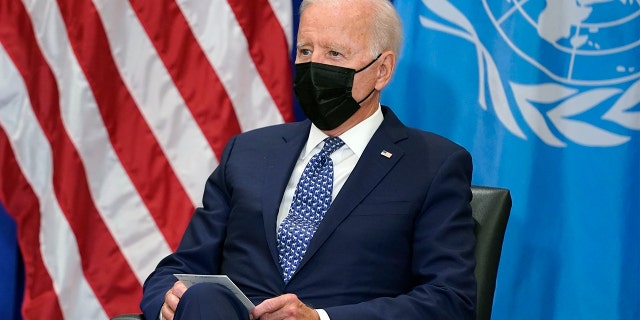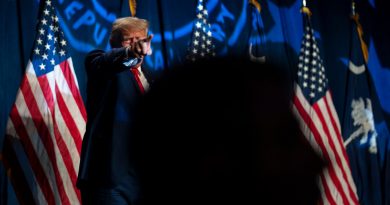Biden at UN faces test of 'America is back' claim after bungled Afghanistan withdrawal, dustup with France
President Biden speaks before the United Nations General Assembly
President Biden is set Tuesday morning to deliver his first address at the United Nations General Assembly since taking office, facing his international peers following the United States’ chaotic withdrawal from Afghanistan, amid tensions with France after a new trilateral agreement with the United Kingdom and Australia, all while the world continues to grapple with COVID-19.
The president is set to address the United Nations General Assembly in New York City, with administration officials describing the event as a “huge opportunity” for Biden.
Asked about the multiple crises facing the Biden administration, White House press secretary Jen Psaki said this is “what you do as president.”
“You navigate crises, you weather storms and we’re certainly doing that right now,” Psaki said on “CBS This Morning.”
“But this is a huge opportunity today for the president. He has obviously been on the world stage for a long time, but he’s going to say to the world, to all of the leaders in the room, we’re not looking inward,” she said. “After we end a 20-year war, we’re going to look outward and we’re going to prioritize what’s most important to address – whether that’s the climate crisis, whether that’s cyber threats, continuing to work with partners on counterterrorism.”
President Biden meets with United Nations Secretary General Antonio Guterres at the Intercontinental Barclay Hotel during the United Nations General Assembly, Monday, Sept. 20, 2021, in New York. (AP Photo/Evan Vucci)
(AP Photo/Evan Vucci)
She added: “And that’s what we need to have our resources and focus and our eyes on – and we’re going to do that through rebuilding our allies and partners.”
Biden, so far, has ignored questions about the United States’ chaotic withdrawal of all military assets from Afghanistan, which was complete on Aug. 31, after the country fell to the Taliban.
The U.S. evacuated more than 124,000 individuals – including at least 6,000 Americans citizens, and thousands more Afghan allies and partners. Thirteen U.S. service members were killed during the withdrawal. At least 100 Americans who wanted to leave were left behind, the administration said.
Biden has also come under pressure from France after French President Emmanuel Macron recalled its ambassadors from the U.S. and Australia following a new trilateral agreement focused on the Indo-Pacific between the United States, the United Kingdom and Australia (AUKUS). The agreement is set to focus on developing Australia’s nuclear-powered submarine capabilities – an effort France was working to undertake with Australia. France previously made an agreement to send French-made submarines to Australia.
The French are insisting on explanations and clarifications this week when Biden and Macron connect over the phone. Psaki explained that Biden will attempt to reassure the “key partner and ally” but said the U.S. has no intention of withdrawing from the AUKUS agreement.
“We have a long, abiding relationship, friendship and alliance with France. What we’re talking about here – this is about an economic deal,” Psaki said. “We have the best nuclear technology in the world. And the Australians wanted our technology prior to that. They were buying this from France. We understand that they’re displeased about that.”
She added that Biden will use his address Tuesday to “convey alliances are the backbone of who we are.”
“We’re going to build and address these issues in the world based on those alliances – climate, cyber, counterterrorism, whatever it may,” Psaki added.
Meanwhile, United Nations Secretary-General Antonio Guterres has suggested that the United States may be fomenting a Cold War with China, describing the relationship between the U.S. and China as dysfunctional.
Psaki said the Biden administration does not “agree” with Guterres’ assessment.
“The president met with him last night and conveyed you do not have to be concerned that we’re trying to start a Cold War with China,” Psaki said. “That is not what the United States is going to do.”
Psaki added that Biden will address the matter in his address Tuesday, while maintaining that the U.S. views its relationship with China “through the prism of competition.”
Biden, earlier this month, spoke with Chinese President Xi Jinping for the second time over the phone as president.
“China is a competitor, but it’s not a country we want to have conflict with,” Psaki said. “So what people will hear the president talk about is, where we have issues, we will raise them, but we will also look to areas where we can work together and we need to work together.”
Officials also said Biden will communicate Tuesday that he “does not believe in the notion of a new Cold War with the world divided in blocks.”
Source: Read Full Article



